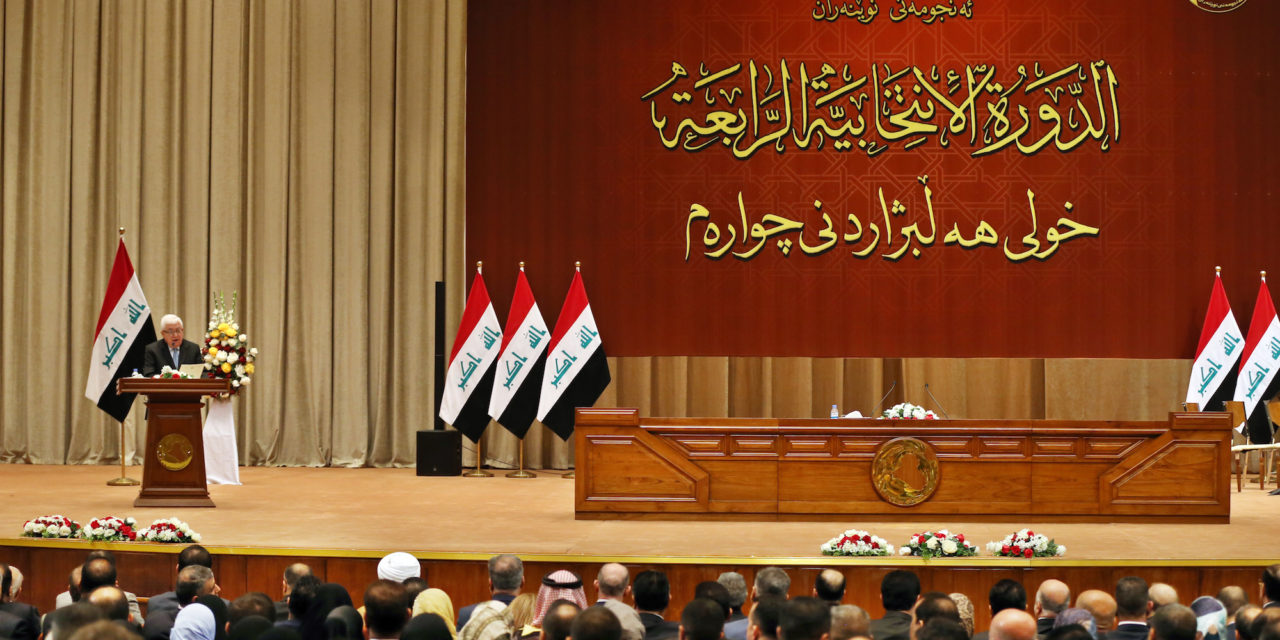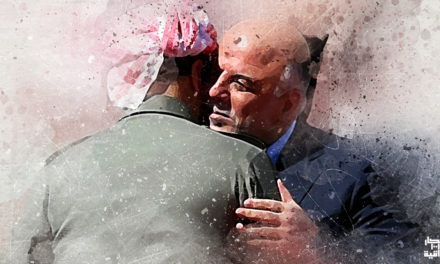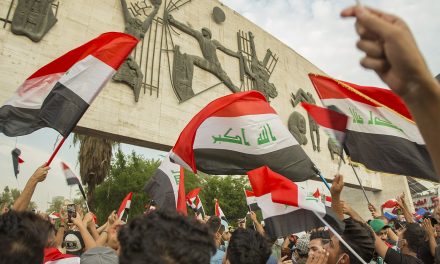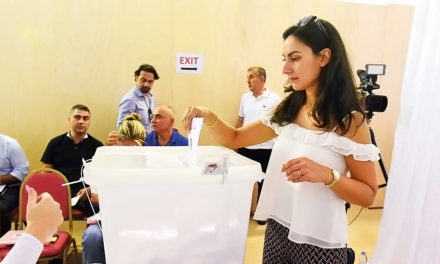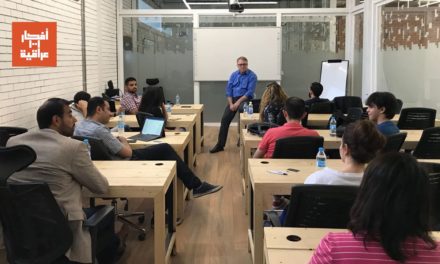One of the most interesting peculiarities of human behavior is that people tend to act in a much less discreet manner and throw caution to the wind when they know for sure that they are not being monitored and/or judged.
Imagine having a person watch over your shoulders each time you text someone, then imagine seeing their frowning face judging you harshly each time you are on the verge of sending an embarrassing text. With time your texts would become a lot less embarrassing and a lot more polished.
Messing up is a learned behavior, and the same goes for not messing up. Speaking of messing up, we need to talk a bit about the Iraqi Parliament.
As political parties that secured seats in the new Parliament after winning in May’s General Election are struggling to construct the largest Parliamentary bloc that is supposed to form the new government according to Article 76 of the Iraqi Constitution, any casual observer will be able to discern easily a common theme that is governing the conduct of all Iraqi politicians: Not one of them wants to be banished to that dark, lonely place that some like to call ”parliamentary opposition”.
Iraq has been a parliamentary democracy since 2005, a democracy whose age is only 13 years is still nascent. Our democracy has a lot of catching up to do before it can become well established and fully functional.
One of the most important issues that made successive Iraqi parliaments ineffective and incompetent is the absence of an active parliamentary opposition. Opposition MPs (when given the opportunity to reach their full potential) are capable of playing a crucial role in monitoring the performance of the government and providing a system of checks and balances. Their job is essentially to keep the government on its toes at all times. When the government knows that the opposition will closely monitor every step it takes, the chances of it taking the wrong step will decrease significantly over time.
Unfortunately, in Iraq the culture of parliamentary opposition is not a concept to which the vast majority of Iraqi politicians can relate. Everyone wants to form the government, everyone wants to become the boss, and more importantly no one likes their performance to be monitored or judged.
I personally view Parliament as a public sector institution and MPs as public sector employees (although many would disagree with that characterization for valid reasons). Public sector institutions in this country are for the most part plagued by massive corruption and utter incompetence. Performance standards/monitoring is not a part of workplace culture in Iraq; employees almost never face consequences if the quality of their work is subpar (which is often the case). I refer readers to this piece by Iraqi writer Ali Hadi Al-Musawi if they are curious to learn more about the abysmal situation of Iraq’s public sector.
Sadly, our Parliament, being a public sector institution itself, is no exception. I am a firm believer in our democracy despite its many flaws, but the way our MPs have chosen to conduct themselves over the past 13 years is indefensible. A major shakeup is needed and radical changes must be implemented, and in order for that to happen Iraqi MPs have to make their peace with the reality that in a healthy democracy not everyone gets to form the government.
The reluctance of our MPs to entertain the possibility of accepting an opposition role can be explained in many ways, the most important of which is that in their minds the role of an opposition MP has no formal prestige attached to it. This is due to the fact that the current legislations do not address in a comprehensive fashion the rights and duties of opposition MPs which could potentially lead to opposition MPs feeling exposed and unprotected particularly when faced by a lack of cooperation or even outright hostility from the government’s side (something which ideally should never happen because it is the duty of the government to cooperate with the opposition at all times in order to reach an understanding that best serves the interests of the electorate).
Governments in post-2003 Iraq have been formed based on the quota system as the democracy of accord was thought to be the best approach to avoid marginalizing any ethnic/religious component of Iraqi society and to ensure that all Iraqis regardless of their backgrounds are represented in both the government and parliament. Many implicate the quota system in causing the nonexistence of an active parliamentary opposition and I tend to agree. However, an interesting phenomenon has emerged during this election season, which I find to be quite encouraging: Identity politics has taken a backseat, and cross-sectarianism in politics has increasingly become more and more mainstream. This phenomenon is evident even in blocs, who were born post-election, MPs from different backgrounds are forming alliances and making a choice to work together side by side. It is too early to declare the death of the quota system, but what we are seeing recently is definitely a step in the right direction.
Another reason which could make some of our MPs (to avoid generalization I am not saying all of them) reluctant to embrace being in the opposition is their perception that being in the opposition is not as lucrative as being in the government. Self-enrichment opportunities are not as abundant when you are an opposition MP, power and privileges are significantly less too. Corruption in Iraqi politics (and in politics generally) is simply a fact of life; pure politicians do not exist anywhere in the world. But we can hope as more new faces enter Parliament (This election only 92 MPs from the previous term retained their seats, while 236 new MPs won) we can see a reduction in the level of corruption.
Our MPs are products of our society first and foremost. Iraqi society is an inherently patriarchal society that does not tolerate dissent or difference of opinions. Besides, there is a certain degree of reverence and infallibility attached to authority figures, which can often be unhealthy and destructive. MPs and government officials are not authority figures, they are servants of the public and they should embrace opposition and criticism with open hearts and minds. Reaching consensus and achieving uniformity of opinions on pressing issues should never come at the expense of silencing those with different points of view. Only in cults and in dictatorships people agree on everything, because they have no other choice. Iraqis who lived under Saddam’s rule will know exactly what I am talking about here.
Iraqi writers Hamzeh Hadad and Muhammad Al Waeli argue here that Iraq needs a leader with a vision. And I am here to argue that Iraq needs a strong and unified parliamentary opposition bloc with a clear vision and a detailed programme that can provide viable alternatives to what the government has to offer. Opposition MPs must put the best interests of Iraq and Iraqis first when they assess and monitor the performance of the government and its officials. Critique must be offered in a constructive fashion with alternative solutions presented that are carefully crafted to bring about results. If the government gets something right, then the patriotic duty of opposition MPs entails that they must offer their support and encouragement, not obstruct just for the sake of scoring political points. If the government gets something wrong then opposition MPs must speak up and call out the government, as it is their primary mission to put the government back on the right track whenever it deviates from it for whatever reason.
The ”either we get to form the new government, or we shall bring it down within an X amount of time” utterances – which unfortunately we have heard from leading Iraqi politicians post-elections – are neither helpful nor dignified. Any politician who wishes to serve her/his people is perfectly capable of finding ways to do so regardless of whether she/he gets to form the government or be in the opposition.

Noor Ali
Noor Ali is a resident of Baghdad and a Middle East observer, mainly focusing on Iraqi social justice & women’s rights.

